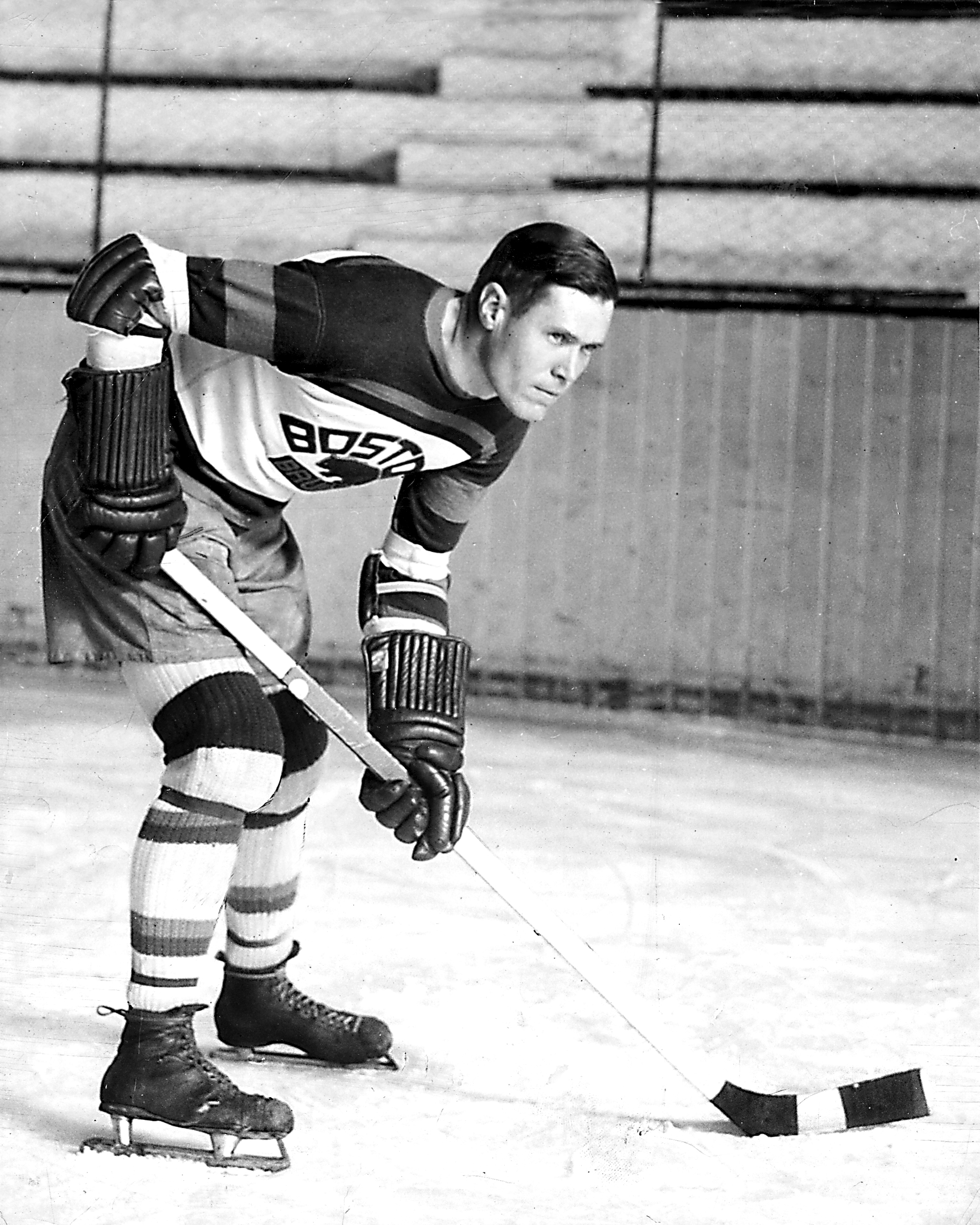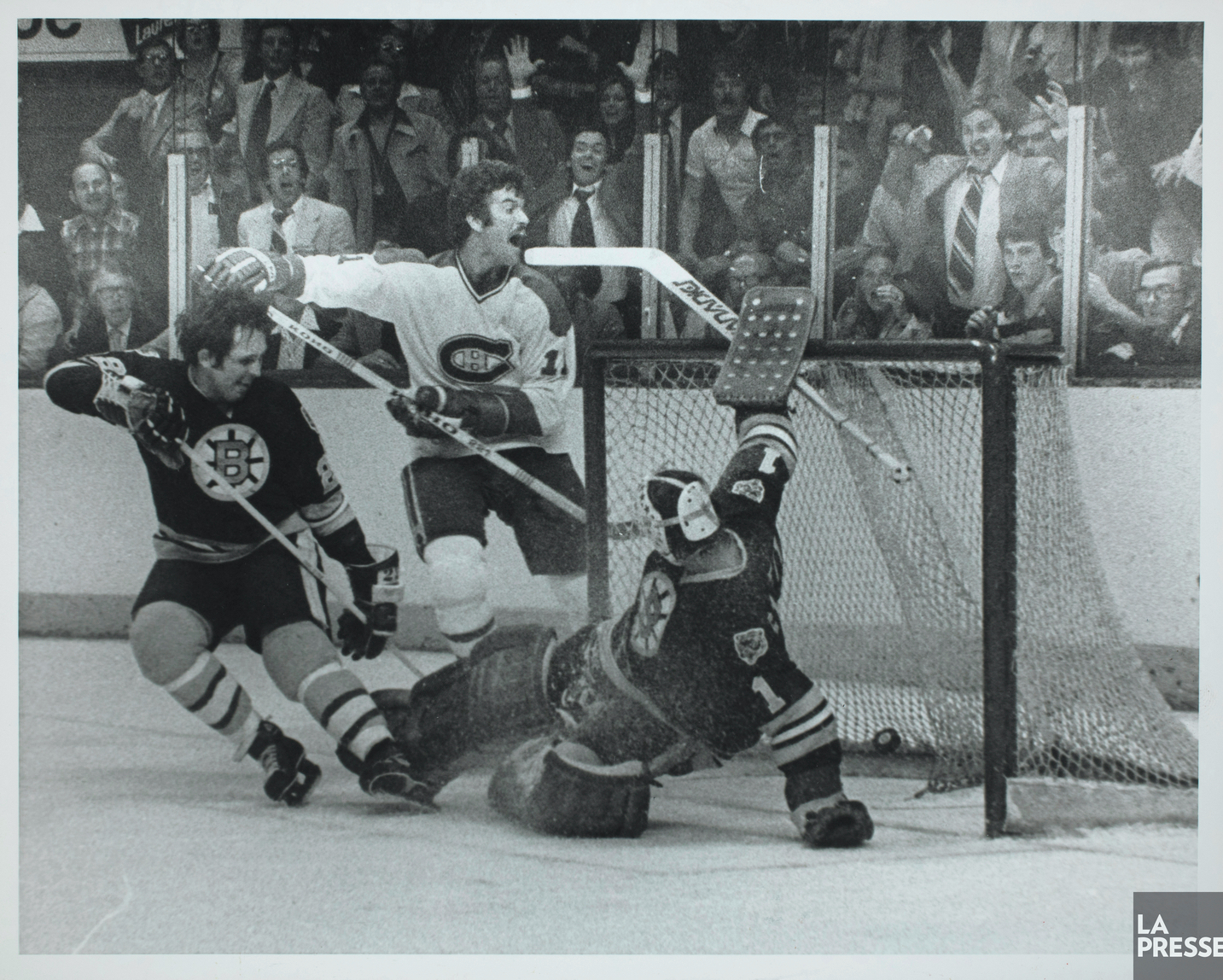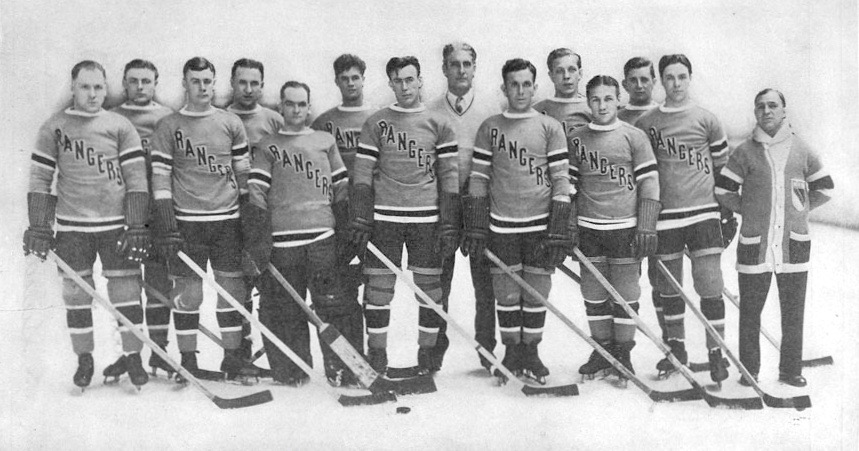
A Cup For Chicoutimi’s Cuke: In May of 1927 — the 12th, to be exact — Montreal Canadiens’ co-owner Léo Dandurand announced the advent of a new trophy celebrating the legacy of the iconic goaltender.
Passing along a calendar note, here, from Puckstruck’s Pedantry Desk. As you may have seen yesterday (in one of the several on-this-day posts across social media) or heard (on Hockey Night in Canada), it’s an anniversary this week for the Vézina Memorial Trophy. On Hockey Night, host Ron MacLean mentioned it in the second intermission of last night’s Vancouver—Edmonton game, setting up the punditry from his panel. “The Montreal Canadiens,” he intro’ed, “donated the Vézina Trophy on this day, May 14th, 1927. A pretty special goalie story happening tonight for the Edmonton Oilers.”
Good for Calvin Pickard, the Oiler goalie in question: he had a shutout going at that point, and ended up on the winning side of things as Edmonton skated to a 3-2 victory.
As for the Vézina, a correction is in order: if there’s a date we’re going to pinpoint as the trophy’s birthday, May 12th would be the one, rather than the 14th.
To recap: Georges Vézina, colossus of the Canadiens’ net for more than a decade, was still with the team in 1926 when illness stooped him in his skates. He died of tuberculosis in March of 1927 at the age of 39.

Vézina’s trophy.
NHL President Frank Calder was the one who originally suggested that the Canadiens might want to pay tribute to their late, great goaltender by donating a trophy in his name.
And so it was. Canadiens’ co-owner and director Léo Dandurand confirmed as much a year later, on the night of Thursday, May 12. The NHL season had ended a month earlier in 1927, with the Ottawa Senators overturning the Boston Bruins to claim the Stanley Cup. Montreal had bowed out of the playoffs in the semi-finals, losing to Ottawa.
Still, that May night they celebrated in Montreal, paying tribute, specifically, to the team’s 25-year-old superstar, Howie Morenz.
Why? Just because. He’d just wrapped up his sixth NHL season, finishing third in league (regular-season) scoring, and friends and admirers felt the need to (as the Montreal Gazette put it) “to do honor to the man whose meteoric speed, general effectiveness, and sportsmanlike bearing as a centre ice players for the Canadiens Hockey Club has earned for him a reputation second to none in the game.”
The venue was the prominent private social and literary Club Canadien de Montreal, at 334 Sherbrooke Street East. Frank Calder was there, and Art Ross from Boston, Montreal Maroons’ captain Dunc Munro, and Morenz’s best pal and former teammate, Sprague Cleghorn. Former Montreal Wanderers’ goaltender (and haberdasher-about-town) Riley Hern was on hand to present Morenz with “a handsome set of glassware.”
There was feasting, there was music, there were speeches.
It was when Dandurand got up to give one of those that the new Vézina Trophy was announced. Reporting the next day, May 13, La Patrie described the scene this way:
Before resuming his seat, Mr. Dandurand spoke of the suggestion that President Calder, of the NHL, of a cup given by the Canadien club in memory of its former goalkeeper, George Vézina, who died approximately 14 months ago. This cup will be awarded each year to the NHL goaltender who has maintained the best average, and this year it will go to George Hainsworth, the worthy successor of the Boy from Chicoutimi.
So: May 12th.
The trophy itself (with its crowning beaver) doesn’t seem to have been in the house, and I haven’t seen any trace of any kind of formal presentation that year. Hainsworth ended up winning the Vézina three years in a row before Boston’s Tiny Thompson finally broke his lock in 1930.
Hainsworth did definitely get his hands on the actual trophy in March of 1928, on the last night of the NHL season, when President Calder was on hand at the Montreal Forum to present it to him. The Canadiens took hold of the O’Brien Cup that night, too, as the NHL’s top Canadian team, while Howie Morenz got the Mappin & Webb Trophy as the Habs’ MVP in home games. Faithful Montreal fans also presented Hainsworth with a large metallic four-leaf clover, while Morenz’s winger Aurèle Joliat got a black cat on a leash. Let’s try not to miss that anniversary when it rolls around again next year.













